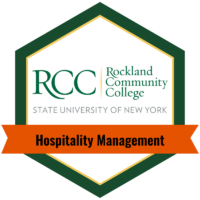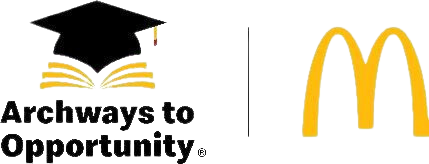Description
 A hospitality management competency demonstrates to prospective employers the skills you have obtained to excel as a professional in the hospitality management industry. This credential is obtained by completing three separate hospitality courses and one ServSafe Food Handler industry certification accredited by the National Restaurant Association. A student who holds a valid certification may submit the original ServSafe Food Handler certificate to the Records Office for validation toward the microcredential.
A hospitality management competency demonstrates to prospective employers the skills you have obtained to excel as a professional in the hospitality management industry. This credential is obtained by completing three separate hospitality courses and one ServSafe Food Handler industry certification accredited by the National Restaurant Association. A student who holds a valid certification may submit the original ServSafe Food Handler certificate to the Records Office for validation toward the microcredential.
Courses Required
HOS 10000 - Sanitation Management
Description:
The understanding of sanitation and food safety management in the hospitality industries are the foundation of this course. Students are prepared for the food & service industry toward a ServSafe certification testing, which is required and monitored by the NYS Health Department. A score of 75% or better will be rewarded with a National Restaurant Association ServSafe Certification.
HOS 10100 - Introduction to Hospitality
Description:
This course will introduce students to the specialty area of business called hospitality management. Students will learn about basic operations, industry challenges, and current trends in tourism, recreation, restaurants, food service, lodging, resorts, spas, special events, conventions, travel, casinos, cruise lines, airlines, them parks, and more. Students will have the opportunity to explore a variety of areas of interest while gaining an understanding of the foundational skills and knowledge needed for a successful career in the world’s largest industry.
HOS 10200 - Restaurant Management
Description:
This course will provide students an understanding of the basic management procedures in the operations of a restaurant. Discussions of business law, insurance, personnel procedures, employee training, customer service and purchasing will be covered. Students will learn the concepts, strategies, and practical skills necessary for managing, owning, and operating a successful restaurant, bar, or other food and beverage business. Key operational functions like menu design, pricing, guest service processes, and employee engagement and performance will also be covered.
Pre-requisite(s): None
Method(s) of delivery: In-person
Credit or Non-credit: Credit
Minimum Grade Proficiency: B-
Minimum Food Handler Certification Proficiency: Must achieve 75% passing rate on exam (Students who hold a current ServSafe Food Handlers Certification must submit the original certificate to the Records Office to be eligible for the microcredential.)
(Grades will be recorded on the student’s transcript. Students who meet the grade proficiency are eligible to earn the microcredential. If a grade is earned below the proficiency level, the course grade cannot be used toward the microcredential, but is eligible for graduation requirements.)
Credits Earned Upon Completion: 9
Eligibility Requirements
Anyone can register
Cost
Visit the Student Accounts page for information on tuition and fees.
*Find out if you qualify for NYS Part Time Tuition Assistance for this microcredential by visiting the Financial Aid Office in the Technology Center on the first floor.
For additional information, visit the HESC Non-Degree TAP webpage.
Related Microcredentials
Stackable to Degrees
(This credential is included in the educational opportunities listed below)
AAS Hospitality and Culinary Arts – Culinary Arts Track
AAS Hospitality and Culinary Arts – Hospitality Track
Certificate in Culinary Arts
AAS Business Administration (2 HOS electives)
Learn more about our degree and certificate programs.
NACE Career Readiness Competencies
- Career and Self-Development
- Critical Thinking
- Professionalism
- Teamwork
Are you a McDonald’s Restaurant Employee Ready to Jumpstart your Career in Hospitality?

McDonald’s and Rockland Community College have teamed up to enhance the McDonald’s Archways to Opportunity program. This partner program allows eligible McDonald’s restaurant employees to complete an abbreviated pathway to earning a Hospitality Management microcredential.
This microcredential can be completed by taking courses one day a week over the course of one semester! Completion of this microcredential can boost your career and education goals.
More about the partnership and tuition assistance support
McDonald’s crew members who meet the criteria listed below automatically receive credit for HOS 10000 – Sanitation Management.
- 6 months, or more, working as a McDonald’s Crew Member
- Successful completion of McDonald’s Corporate Assessment
- Valid ServSafe Certification
- Successful completion of RCC’s Sanitation Assessment Exam (80% passing rate)
Those who meet these criteria need only to complete the remaining two microcredential courses (HOS 101000 & HOS 10200) to earn a total of 9 college credits and the Hospitality Management microcredential.
Financial Assistance is Available
Students may be eligible for tuition assistance through:
Get Started
Complete this form to start your path to Hospitality Management. A member of our Workforce Development enrollment team will walk you through the next steps.
Questions?
Contact Keirsten Gordon via email at [email protected], or phone at 845-574-4518.
Student Outcomes
- Explain food safety protocol & management systems
- Explain contamination, food allergens and foodborne Illness and its impact on the food supply
- Explain the flow of food through a food service operation
- Describe how to keep your facilities and equipment sanitary
- Define the difference between cleaning and sanitizing
- Describe what is meant by integrated pest management
- Analyze the different food safety regulations and standards
- List and explain the different methods of food safety training
- Discuss & understand recent food borne illness outbreaks
- Describe the different types of restaurant equipment
- Discuss the importance of food purchasing, expenses and costs
- Discuss the function of employee training, in restaurant management, recruitment and hiring procedure
- Develop and implement an employee training session
- Discuss the importance of the bar to the restaurant industry
- Discuss the importance of understanding foodborne illness and how to control it
- Describe the laws and regulations affecting the restaurant industry
- Explain the importance of service and customer relations
- Discuss different specific restaurants and how their concepts relates to their menus, design, service and marketing
- Describe the nature of the travel and tourism industry and its economic significance
- Recognize the different industries that comprise the hospitality field
- Describe types of managed food service
- Classify the major kinds of restaurant operations
- Summarize the different types of clubs, including their organization and operation
- Describe the theme park industry and its importance to the hospitality industry
- Discuss the enormous growth in the gaming industry and the impact it has on the hospitality industry
- Discuss the changes in the Cruise Industry and its impact on hospitality
- Explain the growth of special events and meeting management
Skills
- Acquire skills needed to maintain a safe environment for your guests and staff
- Cover needed safety protocols and techniques that deal with food issues in our industry
- Gain an understanding of the foundation skills and knowledge needed for a successful career in the hospitality industry
- Learn about basic operations, industry challenges, and current trends in the hospitality and culinary industry
- Understanding of the basic management procedures in the operations of a food establishment
- Cover a broad knowledge of business law, insurance, personnel procedures, employee training, customer service and purchasing
- Learn key concepts, strategies, and practical skills necessary for managing, owning, and operating a successful food and beverage business
- Develop confidence & learn what is involved to manage a business, learn key operational functions like menu design, pricing, guest service processes, and employee engagement and performance
Steps to Earning a Microcredential
Step 1: Getting Started Is Easy
New Students
If you want to earn a microcredential only, complete the Microcredential Enrollment Form. Search for the course(s) required (select term and then search for desired classes) and input under Course Information on the Form. (Students may register for more than one course if pre-requisites are met.)
If you plan to earn a degree or certificate and a microcredential and have not applied to the College, apply here. See the Web Registration Instructions to register for classes.
Current Students
If you are a current or continuing student, complete the Microcredential Add Form. You can register for courses in Self Service Banner in your myRCC portal. See the Web Registration Instructions to learn how to search and register for classes in Self-Service Banner. If you are registered for the required courses in the microcredential, you only need to complete the Microcredential Add Form.
Refer to the tuition and course fees page to determine the cost of your courses.
Step 2: Verification
When you have met and completed all of the requirements for the microcredential your credential will be verified.
Microcredentials open the door to career opportunities and to earn one of our degrees or certificates for career advancement. Students may utilize the courses passed in a microcredential toward a degree program pending the courses apply to the degree program selected.
Learn More About Microcredentials
In a highly competitive global economy and rapidly changing workplace, upskilling and reskilling is required by more employers to maintain viability in the workplace. New collar jobs are vastly growing in developing fields. The college has developed relationships with local, state and national industries to create a microcredential system to align with industry standards. It is also becoming a test of speed and relevance in a fast changing, technically oriented job market. Some of our credentials offer internships to provide you with real world experiences. Many students find that earning a microcredential helped them find the right career and continue on to degree completion.
We give you skills to succeed on the job. Candidates with strong soft skills are in high demand. Soft skills, also known as durable skills, are the attributes you need to succeed in the workplace. We offer you the opportunity to develop these skills and emphasize them on job applications, resumes, cover letters, and interviews. We offer several microcredentials in durable skills so you take your knowledge from backpack to briefcase.
Designed to meet you at your lifestyle. We are here to help you develop and accomplish your goals every step of the way. You may decide to on-ramp for a microcredential to obtain in-demand skills or microcredentials are also offered within degree programs. Skills badges can be earned singly or several courses can be stacked to lead to a professional microcredential. Badges are stackable credentials and more granular in scope. Achievement of a microcredential indicates that specific skills and/or competencies have been achieved through bundled credit, non-credit, or non-credit to credit courses with embedded skills needed for today’s marketplace.
Badges and microcredentials are offered in-person, online, a hybrid format with flexible scheduling to meet you at your lifestyle. Visit the course schedule to identify the schedule that is right for you. Microcredentials are a digital form of certification indicating demonstrated proficiency in a specific set of skills. Embedded skills badges in some courses provide an added value to your e-portfolio.
Showcase your new skills and accomplishments. Employers want to know about your new skills. Upon successful completion and verification of a credential, you will receive a digital badge as evidence of attaining your new credential that can be shared in your e-portfolio with prospective employers and on social media platforms.
Our Industry Partners. The College works with industry partners and specialists to ensure information is current and we are meeting the needs of industry to create a pipeline of employable candidates. We listen to our partners’ needs to provide educated learners with the knowledge and skills to fulfill jobs and provide students with transfer opportunities to four-year institutions. Apprenticeship and internship partnerships benefit the employer and the student in gaining knowledge and hands-on or real world experiences.
Why RCC? Higher educational institutions are well known to corporate CEO’s for the academic rigor required to demonstrate knowledge and skills proficiency and providing an excellent education.
The world of work has changed and we provide more options so that you can move ahead. Hundreds of jobs require employees to be prepared for new challenges and provide services that did not exist a year ago. Courses are offered in a variety of formats so you can accomplish your goals on your watch. Microcredentials open the door to earn one of our degree or certificate programs.
What are you waiting for? Your future career starts with applying to the College or completing the Microcredential Enrollment Form.
Whether you need additional skills to navigate your entry into the competitive workforce, have a degree and are looking to expand your skills or are thinking about a degree, a microcredential from one of the leading colleges in the SUNY system is right for you.
Jump start your educational adventure with us.
Microcredentialing FAQs
Why should I earn a microcredential?
Whether you need additional skills to navigate your entry into the competitive workforce, have a degree and are looking to expand your skills, or are thinking about a degree, a microcredential from one of the leading colleges in the SUNY system is right for you.
Each microcredential or skills badge:
- Focuses on in-demand knowledge and skills
- Is backed by course curriculum
- Includes student learning outcomes recognized by industry partners and specialists
How do I earn a microcredential or badge?
A microcredential certifies that a student has attained a specified competency or skill set by successfully completing a group of 2-4 related courses and skills as outlined on the webpage. Once the requirements of a microcredential or skills badge are verified, the student is issued a digital icon that can be embedded on social media platforms, an electronic resume or e-portfolio. These icons are linked to college pages with validating information about the microcredential that prospective employers and education institutions can view.
What does a microcredential do for me?
Microcredentials offer:
- Increased potential employment or promotions by certifying new competencies students have achieved and expanding their skill sets
- The opportunity to move to the next level of obtaining a certificate or degree to secure jobs upon graduation
- Opportunity to seek the next level of higher education
- Increased opportunity to advance your career
- Increased industry knowledge of emerging advancements for professionals already working in industry
- Recognizable highly competitive global market value
Can I use the credits earned in the microcredential toward my degree?
Microcredentials open the door to earn one of our degrees or certificates. Students may utilize the courses passed in a microcredential toward a degree program pending the courses apply to the degree program selected.
What if I do not achieve the grades for the microcredential?
It is important for employers to understand the proficiency level attained when earning a microcredential; therefore, a grade proficiency level has been set for courses included in a microcredential. Students earn grades for the courses taken and all grades appear on the student’s transcript. Students who pass the class but do not achieve the minimum grade proficiency listed on the webpage, will not earn the microcredential, but may utilize the courses passed toward a degree program pending the courses apply to the degree program selected.
Why are we different?
We have developed a program with various pathways to meet your needs. Skills and microcredentials are a pathway of accomplishing credit, non-credit, and non-credit to credit coursework that can be stacked to lead to updated industry skills, a professional microcredential, and degree. The College has developed relationships with local, state and national industries to create a microcredential system to align with industry standards. You will earn a credential from a reputable accredited college that allows you to put your skills right to work or continue on to a degree.
We support our students on their journey. We have many support services including tutoring, advisement that includes career planning, and financial aid. If you begin to struggle with your coursework, tutoring is available at no additional charge.
What does it cost?
The cost of each credential varies based on the number of courses required.
